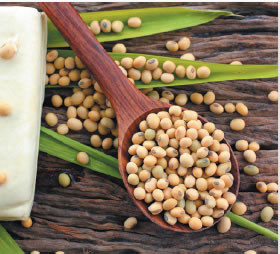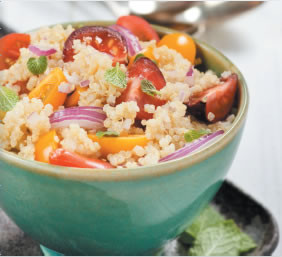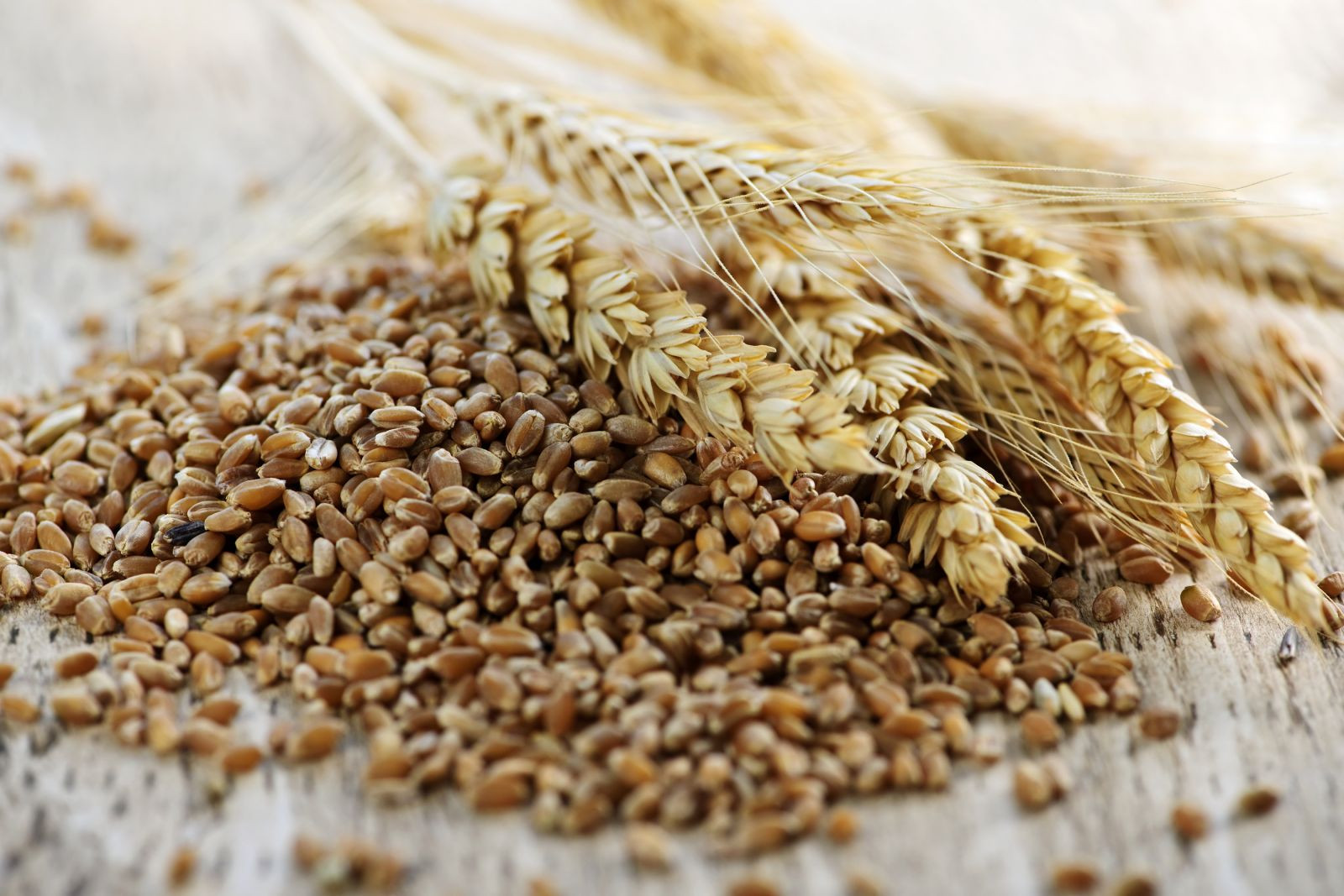
What are somatic workouts?

How to curb your stress eating

How to spot Parkinson’s disease symptoms

8 simple ways to reduce ultra-processed foods in your diet

Heart failure symptoms in women: How they’re different

GERD diet: Foods to avoid to reduce acid reflux

Strong is the new skinny

Everyday habits that sneakily weaken your bones

Don’t wait to get help for back pain

Correcting how you walk may ease osteoarthritis knee pain
Staying Healthy Archive
Articles
Ask the doctor: Health benefits of probiotics
Q. Would you suggest I try taking a probiotic supplement for general colon health? I have a sensitive stomach and sometimes suffer from constipation.
A. Probiotics, the beneficial bacteria that live in our intestines and assist in digestion, have gained a lot of support lately. Each week, a new study appears describing health benefits or diseases associated with changes in the so-called microbiome—the diverse community of microorganisms each of us carries inside our body. Still, the benefits of adding probiotics to the intestinal tract are uncertain.
Probiotics have proved helpful in situations where the body's normal, healthy bacteria have been destroyed, such as after taking a powerful antibiotic. Small studies in people with irritable bowel syndrome have suggested that taking probiotics improves pain and diarrhea. The benefit in constipation is less certain, but it's reasonable for you to try taking a probiotic if you are interested.
Add soy to your diet, but don't subtract other healthy foods
Soybeans, a legume, are rich in protein, polyunsaturated fats, fiber, vitamins, and minerals. |
Soy foods can help you build a healthy diet, but their ability to prevent heart disease and cancer remain unproven. Soy foods, from soy milk to tofu, are often touted for their health benefits. But if you add soy to your diet, be mindful about what you are pushing off the plate.
Better health with smartphone apps
A variety of smartphone or tablet apps are available to support your heart health—for example, by allowing you to track home blood pressure readings and share them with your doctor. |
Downloadable software can educate and motivate, helping you to move in a healthier direction.
Moderate- and high-intensity workout both burn belly fat
What's better for you: moderate but prolonged exercise, or a shorter but more intense workout? A recent study in Annals of Internal Medicine found that both levels of exercise will help you lose about the same amount of belly fat if you burn the same number of calories. But only high-intensity exercise helped control blood sugar levels.
In the study, 300 people with abdominal obesity walked and jogged on treadmills at a moderate or high intensity, burning equivalent numbers of calories. The 217 people who stuck through the study for the entire six months lost on average 1.75 inches from their waistlines—about 5% to 6% of body weight. It made no difference whether they huffed through the higher-intensity workout or the more moderate regimen.
3 ways to manage allergies
Allergies can cause great misery. Luckily, there are options to help manage symptoms and continue doing the things you enjoy. The goal is to find the treatment that best suits your allergies, your lifestyle, and your wallet. Here are three of the most common ways to find relief from allergy symptoms.
Antihistamines
These medications are the mainstay for treating the sneezing, runny nose, and itchy eyes that come with allergies. Antihistamines also relieve hives and other symptoms of some food allergies.
Many people who suffer from hay fever (seasonal allergic rhinitis) are familiar with the older antihistamines such as diphenhydramine (Benadryl) and chlorpheniramine (Chlor-Trimeton). While these drugs work well, they leave many people feeling groggy, sleepy, or just "out of it." Thankfully, the newer generation of antihistamines, including cetirizine (Zyrtec), desloratadine (Clarinex), fexofenadine (Allegra), and loratadine (Claritin), are far less likely to cause drowsiness at recommended doses. Their effects are also longer lasting, so usually you need to take them only once a day instead of every four to six hours.
Core workout can cause muscle soreness
Many popular workouts that aim to strengthen your arms, legs, and abs give short shrift to many of the muscles that form your body's core (the group of muscles that form the sturdy central link connecting your upper and lower body). Strong core muscles are essential to improving performance in almost any sport — and are the secret to sidestepping debilitating back pain.
If you haven't been working your core muscles regularly — or if you challenge yourself with a new set of exercises — expect to feel a little soreness as you get used to your new routine.
Ask the doctor: Safe driving and aging
Q. When is it time to stop driving? My kids worry that my driving skills are slipping.
A. You can drive safely if you have adequate vision, hearing, coordination, strength, and reaction time. These abilities tend to decline with age, and drivers over age 75 are involved in more fatal accidents per mile driven than younger drivers. To drive safely, you should have near-normal corrected vision, including peripheral vision. You should be able to hear a car horn or siren easily. You should be able to rotate your neck to look over your shoulder and have good sensation in your feet.
Healthy diet: Is glycemic index the key?
You can get some of the same benefits of a low-glycemic-index diet by avoiding highly processed foods.
The glycemic index is a number that indicates how rapidly the body digests a particular type of food and converts it into blood sugar (glucose). Some studies suggest that lower-glycemic-index diets may offer important health benefits for men—like a reduced risk of heart disease and diabetes.
Reaping gains from grains
Eating whole grains may benefit your heart and lengthen your life.
Grain foods made from the hard, dry seeds of plants have been a nutritional basic for thousands of years. When you eat a whole grain, you're getting more than just the fiber from the seed's outer layer. You also get all the vitamins, minerals, good fats, enzymes, antioxidants, and phytonutrients that are stripped away when grains are processed.
An avocado a day may keep cholesterol at bay
Adding an avocado a day to a healthy diet may lower harmful LDL cholesterol levels, according to a study in the Journal of the American Heart Association. Forty-five overweight or obese volunteers followed three different cholesterol-lowering diets, each for five weeks. One diet had 24% of calories from fat; the other two were 34% fat, one of which included an avocado per day. While participants were on the avocado diet, their LDL levels dropped an average of 13.5 points—nearly twice as much as when they were on the other two diets.
Hass avocados (the type used in the study) have bumpy, greenish-black skin. The creamy flesh is rich in monounsaturated fats, which help lower LDL cholesterol when swapped for saturated fat. But other compounds in avocados, such as fiber and plant sterols, may also contribute to their healthful benefits, say the authors. Avocados can be sliced into salads, spread on sandwiches, or mashed to make guacamole. Just be sure to go easy on the high-calorie, salty corn chips often served with the latter.

What are somatic workouts?

How to curb your stress eating

How to spot Parkinson’s disease symptoms

8 simple ways to reduce ultra-processed foods in your diet

Heart failure symptoms in women: How they’re different

GERD diet: Foods to avoid to reduce acid reflux

Strong is the new skinny

Everyday habits that sneakily weaken your bones

Don’t wait to get help for back pain

Correcting how you walk may ease osteoarthritis knee pain
Free Healthbeat Signup
Get the latest in health news delivered to your inbox!
Sign Up









